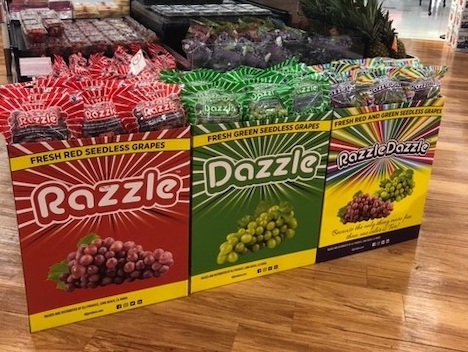A recent report published by the Almond Board of California shows that despite a currently challenging trade environment, global shipments of almonds continue to increase as the industry navigates through tough times.
California almond growers are consistently producing crops at record or near-record levels year after year, meaning the industry must constantly work to expand existing export markets and continue to grow demand in those regions — while also keeping an eye on new opportunities at the global level. In the past year, the coronavirus pandemic, coupled with China’s continued tariffs, have continued to pose a problem for growers looking to move their nuts from California ports to export markets.
During the 2019-2020 crop year, California produced 2.55 billion pounds of almonds. Nearly 1.6 billion pounds were exported, while domestic shipments accounted for 774 million pounds. This represents nearly parallel growth between the two compared to 2018-2019, when domestic shipments grew 4.5 percent and exports grew five percent. The ABC credits this continued growth to the industry’s investment in nutrition research, as well as development of the global market.
The ABC expanded its nutrition research into the area of beauty in the past year, and is also building demand through consumer marketing programs in 11 countries, from India and Japan to the U.S. and Mexico.
“One of the things that I first noticed when I joined the Almond Board four years ago was the passion and pride staff have in helping grow this industry,” Vice President of Global Market Development Emily Fleischmann states in the report, “and that fire continues. It’s what has helped our teams launch innovative new campaigns like ‘Do You Almond’ in the UK this past year and what helps almonds remain the number one nut in new product introductions for 10 years running.”
Forthcoming partnerships include a campaign with Olympian Kerri Walsh Jennings, a brand-new campaign in France and the ABC’s first digital program in India.
India received 256 million pounds of almonds from the U.S. in 2019-2020, followed by Spain (193 million), Germany (134 million) and China (99 million). Global trade tensions with China have changed the landscape of priority markets, according to the report.
“Five years ago, China was our second-largest export destination. It stayed as the third-largest market for several years, surpassed only by the strong growth of the Indian market,” said Julie Adams, vice president of Global Technical and Regulatory Affairs for the ABC.
Adams went on to explain that retaliatory tariffs implemented by China two years ago derailed progress that had been made, with the country previously poised to expand amid an increasing middle class and economic growth.
“Starting in April 2018, we saw the impact of the trade war, which took almonds from a 10 percent tariff to the current 55 percent tariff,” Adams said. “Over the last two years, shipments to China/Hong Kong dropped 25percent in crop year 2018-19 and another 23 percent in crop year 2019-20, with Australia benefiting.”
Although China has dropped to fourth in the line of top U.S. export destinations, the country is still key to building demand for expanded crop production. Many trade issues take a long time to resolve, Adams stated, but it is still essential to engage in positive interactions with difficult markets so that a solution can be found quickly
The report states that global appeal among customers and consumers worldwide is clearly reflected in the almond industry’s regional shipments, and that being well diversified helps counteract trade disruptions that can unexpectedly come up in one market or another. For example, India and China have historically been the primary destination for in-shell markets, but now India has absorbed much of those shipments.
In India, almonds are the number one ag import at $732 million, accounting for 40 percent of all U.S. ag exports to India. In the United Arab Emirates, almonds are the number one ag import and account for around 23 percent of total U.S. ag exports. “There are so many growth opportunities around the globe,” Adams said. “For years, the Middle East and Africa were a small share of exports, but now they represent almost 20 percent.” While acknowledging the many challenges facing California almonds, Adams also believes “the opportunities are limitless.”

